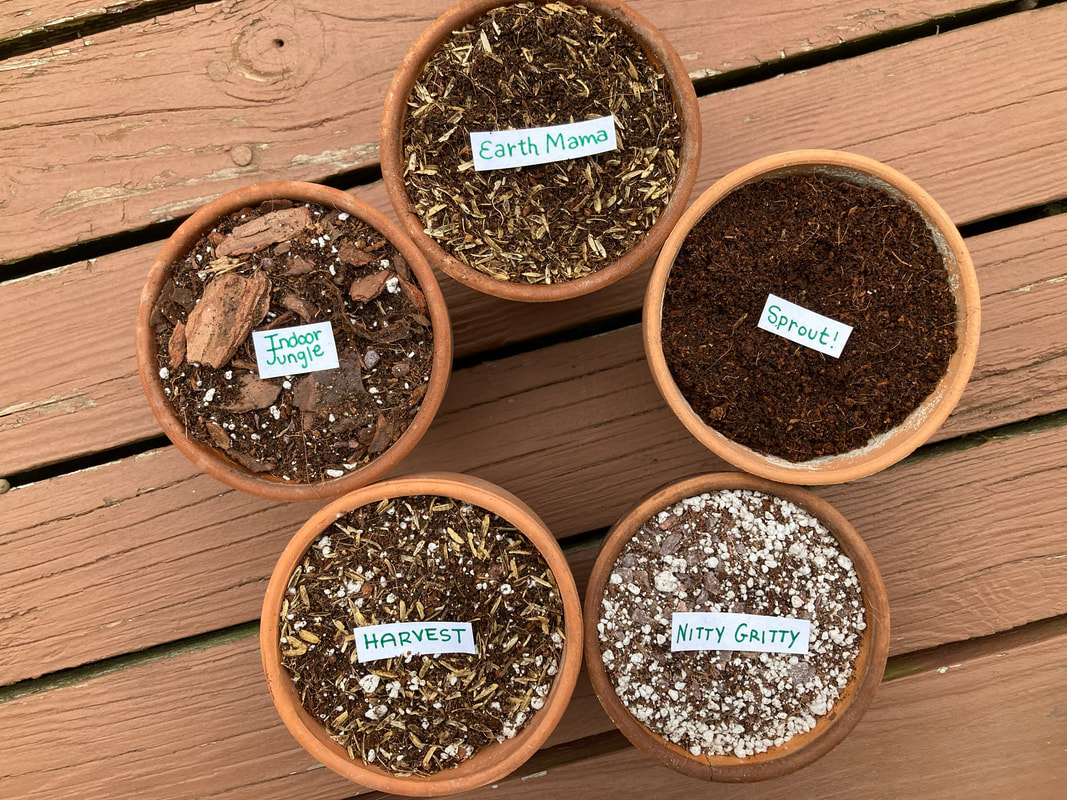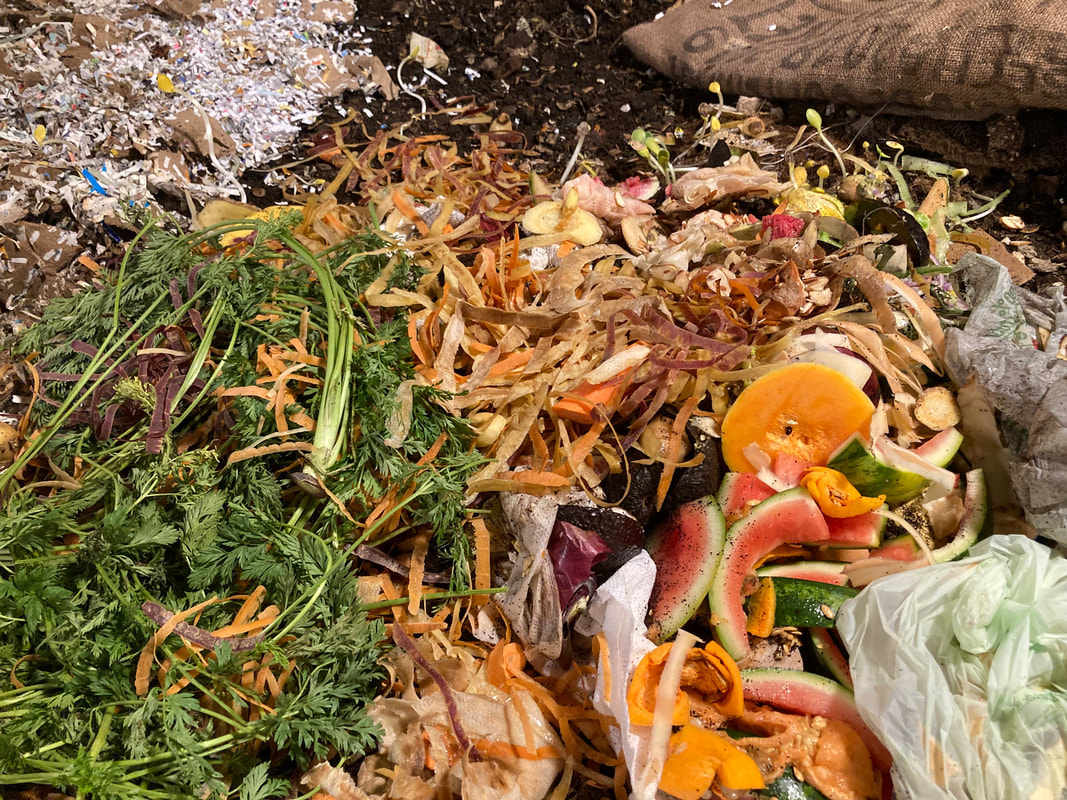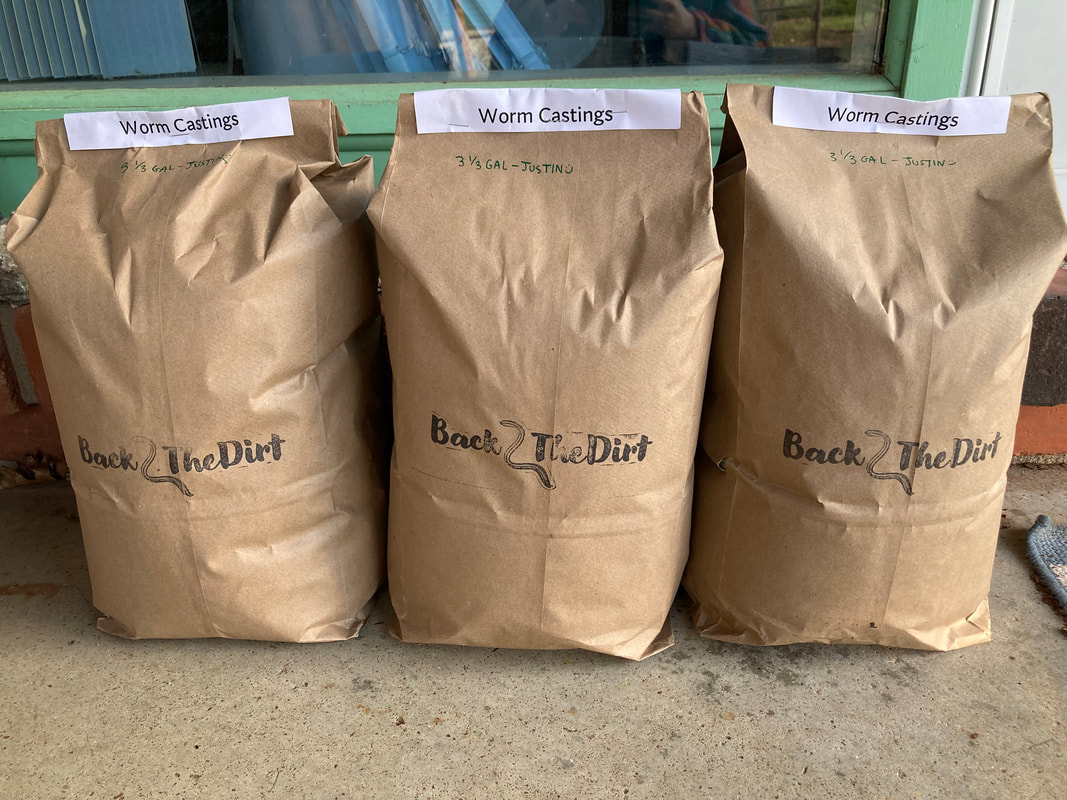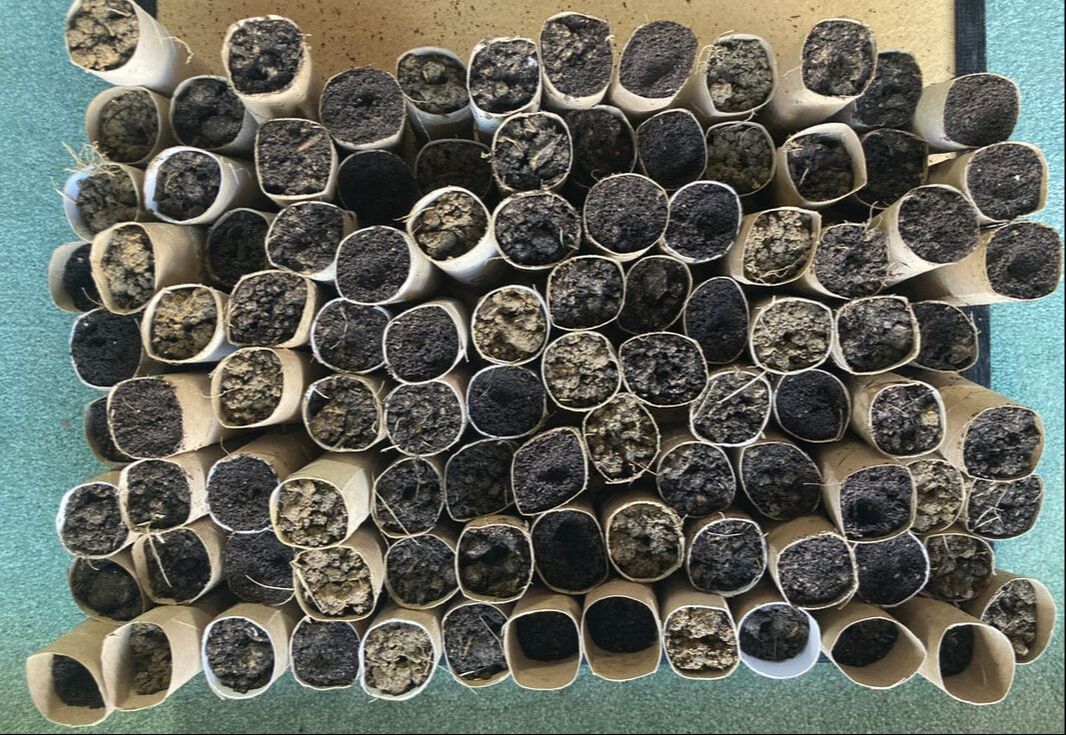|
Happy Spring everybody! With the changing of the seasons, work at Back2TheDirt has picked up. This month we composted 305 lbs and added two new compost members (welcome!). March marked tax season and grant season for us. Thankfully after many hours and one very late night, I was able to finish all the paper work--whew! Nothing like living for a deadline.
With the paperwork out of the way, I was able to focus on getting our soil products ready for spring. At the end of the month, we launched our new line of potting mixes. Check them out on our "Soil Mixes" page. They all use coconut coir and worm casting as their base and are hand mixed to give your plants the best start. It's been fun turning the office into a soil testing lab. Next up will be developing a compost tea recipe and dabbling in worm breeding. We also have worm castings available. I've had worm casting orders coming in every week now, and it gives me such a sense of glee to have an order pop up on my phone. Although this inevitably comes with it's own set of unknowns. I will have to figure out how much I'm producing worm-casting wise monthly and figure out a sustainable rate of harvest. I am also planning to use next month to better quantify the effects of my castings. I've set up an experimental seedling trial comparing different rates of worm castings (0%, 25%, 50%, 100%). I'm excited to grow plants again and to see the castings in action. They are set to wrap up by the end of April, so be sure to check back in to see the results. This month I also had the opportunity to speak at Gorman Heritage Farm about vermicomposting. Not only was it good to return to a place that taught me the joys and healing of farm work, but it made me smile to see a packed room of people that chose to spend their Sunday afternoon learning about composting with worms. My hope is that in the next decade composting at home will become the norm and worms are a great option for those with limited space. For anyone thinking about trying it, go ahead give it a shot! Fun Fact: Earthworms are not native to North America. During the ice age, many native worms were killed off. The worms we find in our backyard today were brought over during European colonization.
0 Comments
Leave a Reply. |
Archives
January 2024
Categories |





 RSS Feed
RSS Feed